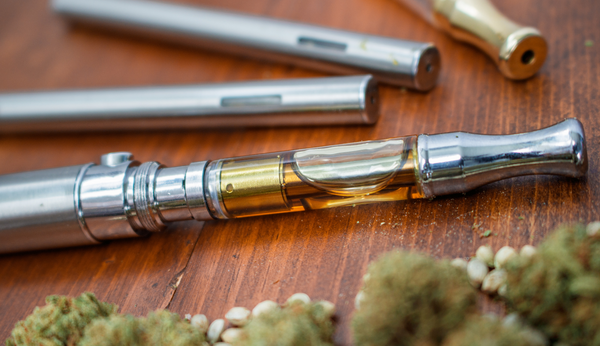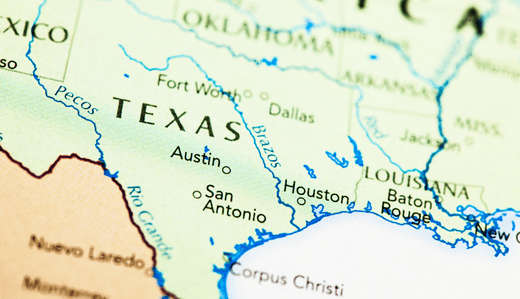Your Cart is Empty
FREE SHIPPING ON ALL ORDERS $75+
Hemp-derived Delta-8-THC is legal according to federal law, and many states have broadly legalized hemp as well. Is Delta-8-THC legal in Texas? And if so, where can you find some for yourself?
Luckily, Texas has amended state laws to fully legalize hemp and all hemp-derivatives, effectively legalizing hemp derived THC - for now. Lt. Gov. Dan Patrick is pushing legislation to ban Delta-8, but it's unclear if this will change Delta-8 laws in Texas.
Here are the Texas Delta-8 laws you need to know before you buy:
Looking for legal Delta-8-THC you can buy in Texas? Check out our Elev8 Collection.
Disclaimer: We’re always working to stay informed on the latest Delta-8 laws and research. However, state laws are subject to change and we advise that you do your own research to verify the information you find in this article. This is not intended as legal advice.
Table of Contents
Delta-8-THC and Federal Laws
Texas Delta-8-THC Laws
Is Delta-8 a Controlled Substance in Texas?
Delta-8-THC Possession Limits in Texas
Is Delta-9-THC Legal in Texas?
Where to Buy Delta-8 in Texas
Do You Have to Be 21 to Buy Delta-8?
Is Delta-8 Legal in All 50 States?
Resources
Texas updated their hemp laws shortly after the 2018 Farm Bill became federal law. In Texas, CBD is legal, as are other hemp derivatives.
The state defines hemp similarly to federal law, as any Cannabis Sativa material containing less than 0.3% Delta-9-THC. That includes all cannabinoids, acids, isomers, salts, and salts of isomers.
Amendments to state law also clearly separate “hemp” from “marijuana.” The Controlled Substances Act was amended to make a specific exemption for hemp and hemp products. By these laws, Delta-8-THC is legal in Texas.
Here’s some snippets from the official text:
Sec. 121.001. DEFINITION.
“hemp” means the plant Cannabis sativa L. and any part of that plant, including the seeds of the plant and all derivatives, extracts, cannabinoids, isomers, acids, salts, and salts of isomers, whether growing or not, with a delta-9 tetrahydrocannabinol concentration of not more than 0.3 percent on a dry weight basis.
TITLE 6. SUBTITLE C. - SUBSTANCE ABUSE REGULATION AND CRIMES
Sec. 481.002. DEFINITIONS.
(5) “Controlled substance” means a substance, including a drug, an adulterant, and a dilutant, listed in Schedules I through V or Penalty Group 1, 1-A, 2, 2-A, 3, or 4. The term includes the aggregate weight of any mixture, solution, or other substance containing a controlled substance. The term does not include hemp, as defined by Section 121.001, Agriculture Code, or the tetrahydrocannabinols in hemp.
(26) “Marihuana” means the plant Cannabis sativa L., whether growing or not, the seeds of that plant, and every compound, manufacture, salt, derivative, mixture, or preparation of that plant or its seeds.
The term does not include:
(A) the resin extracted from a part of the plant or a compound, manufacture, salt, derivative, mixture, or preparation of the resin;
(B) the mature stalks of the plant or fiber produced from the stalks;
(C) oil or cake made from the seeds of the plant;
(D) a compound, manufacture, salt, derivative, mixture, or preparation of the mature stalks, fiber, oil, or cake;
(E) the sterilized seeds of the plant that are incapable of beginning germination; or
(F) hemp, as that term is defined by Section 121.001, Agriculture Code.
 Is Delta-8 a Controlled Substance in Texas?
Is Delta-8 a Controlled Substance in Texas?No. Texas amended the Controlled Substances Act to specifically declare that the term “Controlled Substances...does not include hemp, as defined by Section 121.001, Agriculture Code, or the tetrahydrocannabinols in hemp.”
That means that Delta-8-THC derived from legal hemp material is not classified as a Controlled Substance in Texas.
Texas treats hemp as an agricultural commodity, and there are no specific possession limits in place for hemp or hemp-derived products, like Delta-8-THC.
Still, Delta-8 could be easily confused for Delta-9 THC by authorities without proper documentation and lab testing.
Basic lab testing checks only for tetrahydrocannabinol, meaning that extensive lab tests are needed to differentiate between Delta-8 content and Delta-9 content when proof of legal possession is needed.
No. Cannabis is illegal for recreational use in Texas. Only low-THC formulas have been approved on a limited basis for qualifying patients in the state, and there is no medical cannabis program in place for regular Delta-9 products.
In Texas, possession of less than 2 ounces of cannabis is considered a Class B misdemeanor, which is punishable by up to 180 days in jail and/or fines reaching up to $2,000.

In Texas, hemp products can be manufactured and marketed without much regulations. The same is true for many local states, like Oklahoma, Louisiana, and New Mexico. That means you may find Delta-8-THC in stores across the local area, but you should be wary of product quality.
While you can likely find various hemp products in local stores, there may be benefits to buying Delta-8 online. One reason is that you can buy directly from a brand or manufacturer, instead of purchasing through a third-party vendor that may not fully understand Delta-8 effects and uses or the laws surrounding Delta-8 products.
At Vida Optima, our Delta-8-THC products comply with all parameters of the Hemp Farming Act of 2018. We can also help answer questions about Delta-8 before you buy, or you can read our “What is Delta-8-THC?” guide to learn everything you need to know.
Yes! You have to be 21 years old to legally purchase Delta-8-THC products in the state of Texas.
Delta-8-THC is currently federally legal under the context of the Hemp Farming Act of 2018, but each state has the right to determine their own stance on tetrahydrocannabinols derived from hemp. Delta-8-THC is legal in Texas according to state law, but you should read more about Delta-8 laws by state to determine the legality in other areas.
Ready to shop for Delta-8 in Texas? Our Elev8 collection includes edibles, tinctures, vapes, and more that are Farm Bill compliant and legal in the U.S.

Comments will be approved before showing up.



